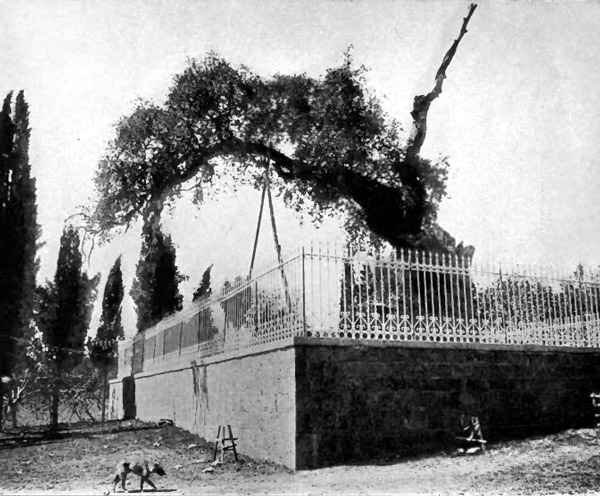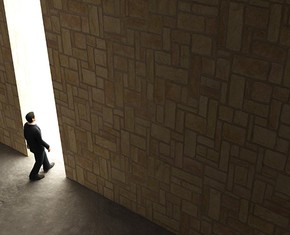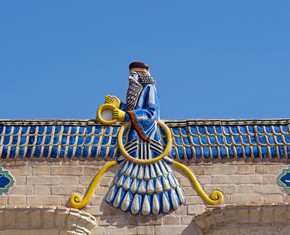The views expressed in our content reflect individual perspectives and do not represent the authoritative views of the Baha'i Faith.
Abraham’s wife Sarah was younger than Abraham, but she died before he did.
She had traveled a long way with her husband, had been faithful to his cause, had been instrumental in giving him a child by Hagar, and then had given birth to a son of her own whose descendants would be extremely important to humanity in the future. She was, as the Baha’i teachings note, a woman who “glorified the human race” by her excellence:
The world of humanity has two wings, as it were: One is the female; the other is the male. If one wing be defective, the strong perfect wing will not be capable of flight. The world of humanity has two hands. If one be imperfect, the capable hand is restricted and unable to perform its duties. God is the Creator of mankind. He has endowed both sexes with perfections and intelligence, given them physical members and organs of sense, without differentiation or distinction as to superiority; therefore, why should woman be considered inferior? This is not according to the plan and justice of God. He has created them equal; in His estimate there is no question of sex. The one whose heart is purest, whose deeds are most perfect, is acceptable to God, male or female. Often in history women have been the pride of humanity—for example, Mary, the mother of Jesus. She was the glory of mankind. Mary Magdalene, Asiyih, daughter of Pharaoh, Sarah, wife of Abraham, and innumerable others have glorified the human race by their excellences. – Abdu’l-Baha, The Promulgation of Universal Peace, pp. 174-175.

The Oak of Abraham in Mamre, 1912.
Sarah died in Mamre, a couple of miles outside the village of Hebron, which is about twenty-five miles south of Jerusalem. Hebron was controlled by a local Canaanite tribe that seems to have been indifferent to the presence of Abraham—neither hostile nor particularly welcoming. They might have had respect for Abraham, but he was clearly not part of their society and held no status in their eyes as a messenger of God. To them he was just a humble sojourner, a resident alien who lived in a tent and herded sheep that dined on wild grasses. When it came to burying a wife who was also a foreigner, Abraham would have been expected to follow the usual custom of using either a pit or a cave to hold the body.
If Abraham were to dig a shallow pit, it might be in an informal community cemetery already established to hold family members and servants that had been part of the extended households of Abraham and Lot. Each pit in the cemetery would probably have been lined with flat chunks of rock and topped off with a heavy slab of stone plus a heap of boulders. A large pottery jar, of the kind used to store grain or oil, might have been placed on top as a marker. An alternative method of burial, also in common use, would have been to find a cave on a rocky hillside in the wilderness and use it as family tomb where Abraham, too, when the time came, could be laid to rest beside Sarah.
But, in what must have been a surprising move to those around him, Abraham did neither of these things. Instead, he went into the town of Hebron.
Abraham approached the elders of the town and bowed before them in greeting, saying, “I am a sojourning settler with you. Grant me a burial holding with you, and let me bury my dead now before me.”
The men welcomed Abraham with perfunctory courtesy, but they ignored the idea of his buying any of the land lying within their control, probably because the notion of selling to an outsider would have been repugnant. They suggested, instead, that he choose one of the existing tombs in Hebron, promising that “none of us will refuse you his grave for burying your dead.”
At the time, community and family tombs—caves or excavations that could hold multiple bodies—were common throughout Canaan. The elders might well have assumed that before Sarah was placed in one of the tombs, her body would spend several months in a shallow hillside pit where it could decompose. After that, the burial in Hebron would be a simple matter of gathering her bones and putting them in a box or jar. The jar would subsequently be placed in one of the existing tombs, where it would occupy very little space.
Abraham bowed once again to the elders to show his respect and then deftly used their offer as a means of turning the conversation in the direction he intended it to go. “If you are willing to let me bury my dead,” He said, “Intercede with Ephron, son of Zoar, on my behalf so he will sell me the cave of Machpelah, which belongs to him and is at the end of his field.”
The cave of Machpelah lay at the outer edge of the town, near Mamre, a location that would have made its sale at least marginally palatable to the townsmen because Abraham could approach it without walking across any of the property that already belonged to Hebron’s other residents. And, enticingly, Abraham also announced that he wasn’t looking for a bargain: “Ask him to sell it to me for the full price as a burial site among you.” Ephron, who had been sitting quietly among the elders, heard every word—as Abraham undoubtedly intended. He refused to take any money but offered the cave, along with the surrounding field, as a gift to Abraham, though in a manner that may have been contemptuous and clearly was not meant to be taken seriously. “I will give you the cave and the field. Here in the presence of my people, I give it to you. Go and bury your dead.”
Abraham, naturally, declined the spurious offer—but he pounced on the fact that Ephron had linked land and cave and made them a package deal. “I will give the price of the field,” Abraham said, and “accept it from me that I may bury my dead there.” The tenor of the text of Genesis indicates that buying both land and cave was really what Abraham had intended all along, but that he had been wise enough to ask only for the cave at the beginning and let the first hint of selling the land come from the mouth of the owner.
Ephron, whether through greed at being able to name a price without any bargaining or from scornful glee at the chance to publicly humiliate an outsider, demanded an exorbitant sum: “Well, the land is worth four hundred pieces of silver but what is that between friends?”
Abraham now had exactly what he needed, though at the outset it had seemed impossible—the offer of land and an appropriate cave in Hebron for a price determined by the owner and witnessed by the city elders. And, high though the price was, Abraham had come prepared to pay it.
At this point, Ephron faced the prospect of concluding the deal or losing face in front of his peers. And because Abraham was paying exactly what was asked, with none of the usual bargaining to lower the price, Ephron and the rest of the townspeople would never be able to claim at a later date that a fair price had not been paid:
So Ephron’s field, which was in Machpelah, which faced Mamre, the field and cave which was in it, and all the trees which were in the field, that were within all the confines of its border, were deeded over to Abraham for a possession. – Genesis 23:17.
















Comments
Sign in or create an account
Continue with Googleor